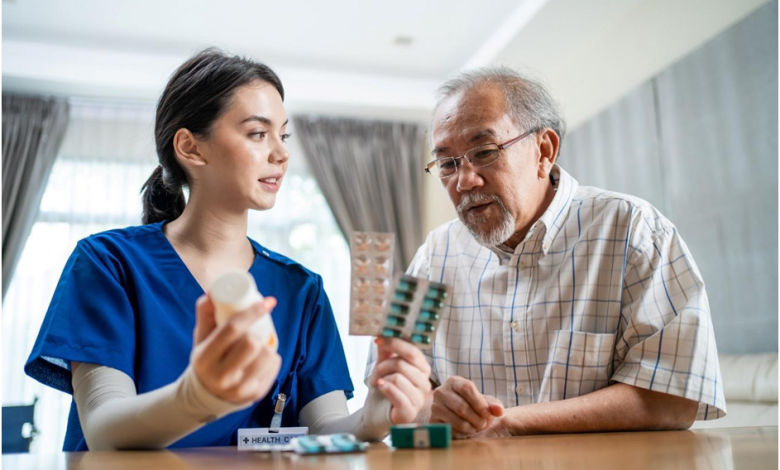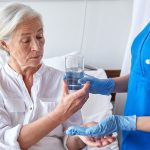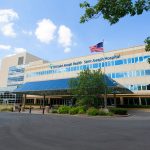The role of nurse practitioners in ensuring patient safety

Nurses are vital players in the medical world. They play a pivotal role in patient care and recovery and are often patients’ primary contact with their medical care. With their skills and knowledge (and sometimes specialized skills and knowledge), nurses can form the bridge between doctors and patients, creating a certain degree of trust and understanding with their patients.
These accomplished professionals practice with more responsibility and autonomy than traditionally afforded to the nursing profession, often performing tasks only doctors could do. These include prescribing and managing medication and ensuring patient safety. This implies a high degree of care and competence to ensure that all related processes are as safe as possible for patients. Building patient trust and communication, as well as their knowledge, plays a fundamental role in ensuring patient safety, particularly regarding medication management.
This article delves into this subject area and discovers how nurse practitioners manage medication and ensure patient safety. We also learn more about the role of a nurse practitioner and how it is possible to embark on a course of study to gain entry into this rewarding and enriching career.
What is a nurse practitioner?
Let’s start this article by understanding more about the nurse practitioner’s (NP) role. According to the AANP (American Association of Nurse Practitioners), more than 385,000 licensed NPs are in the United States. Most are employed in primary care, although some work in other branches of medicine, such as psychiatry or in non-primary care settings, such as hospitals.NPs in primary care see patients of all ages and at all stages of their lives, from newborns to elders. This means they build relationships with their patients, get to know them individually, and understand their healthcare needs. It also means that their skills are wide-ranging, and they can readily adapt to patients’ changing and diverse needs.
This is very much in keeping with their holistic approach to care, which means they consider the full range of a patient’s needs, from the emotional and spiritual to the physical. They will also be sensitive to cultural, socio-economic, and other factors contributing to a patient’s well-being.
NPs perform a wide range of tasks that, until recently, would only be entrusted to a doctor. This means that NPs not only provide exemplary and wide-ranging care duties to patients, but they are also helping to plug gaps in provision, especially in under-resourced and remote areas.
Typical tasks include ordering and interpreting tests, diagnosing patients, and creating treatment plans. What’s more, over 96% of NPs prescribe medications, writing an average of 21 prescriptions a day. Prescribing is, therefore, an essential part of an NP’s duties, bringing with it many responsibilities (note that the degree of autonomy and ability to prescribe can vary state by state).
Medication management and patient safety
Clearly, advising on medication matters and managing and prescribing medication is a major part of the NP’s role. NPs are versed in several procedures to ensure sound medication management and patient safety matters, which we’ll look at further here.
Accurate medication reconciliation
Medication reconciliation refers to the process of comparing the medication that a patient is taking to that listed on their medication orders. This is a necessary process to avoid issues such as dosing errors, adverse drug reactions, duplication of medications or failing to administer a medication.
Given their frequent and close contact with patients, NPs have a vital role in carrying out accurate medication reconciliation processes to avoid such errors. They may do this by creating, reviewing and checking lists of their patients’ medications. This is part and parcel of any consultation or assessment and should also be included in any medical review.
As part of their patient’s notes, the NP will create a list of current medications, add any new medications to be prescribed, compare the two sets of medications and make an informed clinical decision based on this information. They will then communicate this to their patient and caregiver if necessary.
This rigorous review and comparison of medication takes place in conjunction with understanding a patient’s overall health status, history and health goals. This is a perfect example of how NPs consider patients within a holistic context, which we touched on at the outset of this article.
In senior roles, NPs may also be responsible for developing systems and workflows for medication reconciliation. This is part of their overarching remit to ensure that patients receive safe, quality care and experience the best healthcare outcomes.
Comprehensive medication reviews
A medication review is essential to the consultation between NPs and their patients. Medication reviews are critical as medication changes and additions are frequent. And, of course, a patient’s health status and their need for a particular medication may change between visits.
For example, if a patient becomes pregnant, then a medication review will identify medication that harms breast milk supply, and these can be swapped for a safer alternative. Medication reviews can also pick up any inadvisable combinations of drugs and are also a chance for patients to talk about any side effects they might be experiencing. NPs carry out comprehensive medication reviews with an overall assessment of their patient’s health. This means they will gather a complete picture of their patient’s status, taking observations and carrying out any additional checks or tests as necessary. They can adjust their medication list as required once they are satisfied with their patient’s status and diagnosis.
Another essential aspect of medication reviews is the NP’s commitment to continuing professional development. This means that they pursue formal and informal ways of expanding their knowledge about medication, ensuring they are up to date with the latest discoveries and best practices. They may achieve this through attending courses, self-directed study, or professional events, for example.
Managing medication-related risk
Managing medication-related risk is another important aspect of the NP role. As we have already seen, this role brings with it many responsibilities both on a day-to-day and strategic level.
At one end of this spectrum, nurse practitioners working in senior or strategic roles may contribute to systems and procedures that aim to mitigate medication-related risk. They may do this part of their remit on medication boards or research projects. They could equally fulfill this role if working in a nurse educator position, encouraging other healthcare professionals in a focus on medication safety.
Daily, NPs will follow and enforce procedures that reduce the likelihood of medication-risk. These include the following policies and protocols for prescribing, administering and reviewing medication.
Senior nurses such as NPs will also be responsible for training and educating their teams on these procedures. When leading their staff, they will be mindful of the benefits of this type of training and will keep an open-door policy so that colleagues feel comfortable asking for advice and guidance in this area.
They will also have a role educating patients about their prescribed medications. This includes ensuring that they understand dosing instructions, are aware of any side effects and risks and know what to do if they encounter any issues with their medication.
Another vitally important part of managing medication-related risk is accurately identifying and reporting any medication errors or adverse effects. Understanding the procedures to do this and ensuring that their staff are equally aware of what to do is part and parcel of this remit. An open, honest, and supportive working environment is essential to support this aspect of reducing the risk of medication errors.
NPs may also use technology to help reduce medication-related risk. Digital health records, smart infusion pumps and computerized entry systems are all examples of technology that NPs may use on a day-to-day basis to make the healthcare environment as safe as possible.
Finally, an NP will play an important role in monitoring and reviewing processes linked to prescribing and medication. This means they may lead or play an active role in research projects, surveys and audits to understand medication error risk and devise ways to reduce it.
Interested in a career as a nurse practitioner?
The nursing field is rewarding due to the nature of being able to help patients improve their health or help those with terminal illnesses have a more comfortable life. Depending on the field of nursing chosen, nurses often play a role in some pleasant moments in their patients’ lives, such as helping to deliver newborn babies and helping patients make it through their treatments and achieve total health again.
Various fields require nurses to have specialized skills and knowledge to work in them, which can often need further training. Some of the more rewarding roles within the nursing field involve specialized training in psychiatric/mental health care or family care. Both fields require nurses to undergo additional training, such as a master’s degree in nursing.
Registered nurses (RNs) can become nurse practitioners in one of their chosen concentrations by enrolling in an RN to MSN online program at Wilkes University. This program enables one to specialize in a chosen concentration, in roles such as family nurse practitioner (FNP), adult-gerontology primary care practitioner or psychiatric/mental health nurse practitioner.
The Associate Degree in Nursing (RN) to Master of Science in Nursing (MSN) — Nurse Practitioner degree offered by Wilkes University is one such program open to candidates with at least one year of RN experience that provides flexibility for students. The 100% online program can be completed within approximately three years, depending on the concentration chosen.
The program offers a thorough grounding in the advanced clinical skills and theoretical knowledge required to step into a responsible NP role, including a focus on medication management and patient safety, as well as other key subject areas such as leadership, management, and academic writing. Students are supported throughout the program and are helped to secure clinical placements to enhance their experience, offering the perfect balance of theory and practice.
Creating a safer future for healthcare communities
Working as a nurse practitioner brings many responsibilities, but also many privileges. These include the opportunity to forge close relationships with patients and support them all along their healthcare journey.
As we have seen, one of the everyday responsibilities of the nurse practitioner is to assess a patient’s health condition and prescribe medication accordingly. This in turn leads to many other duties of care, including ensuring accurate medication reconciliation, offering medication reviews, and managing medication-related risk. While these are all serious and responsible tasks, they offer the opportunity for NPs to exercise their extensive skills and knowledge with the aim of providing the best possible care for patients.
Nurses play a fundamental role in patient care, particularly in managing their medication. Nurses can improve patient care by enhancing their education and studying further. They can then utilize their knowledge and skills to create a safer future for healthcare communities, manage medication risks, understand what medication their patients require and overall improve a patient’s understanding of what they are being treated with and how best to ensure that their medication has the best effect.





